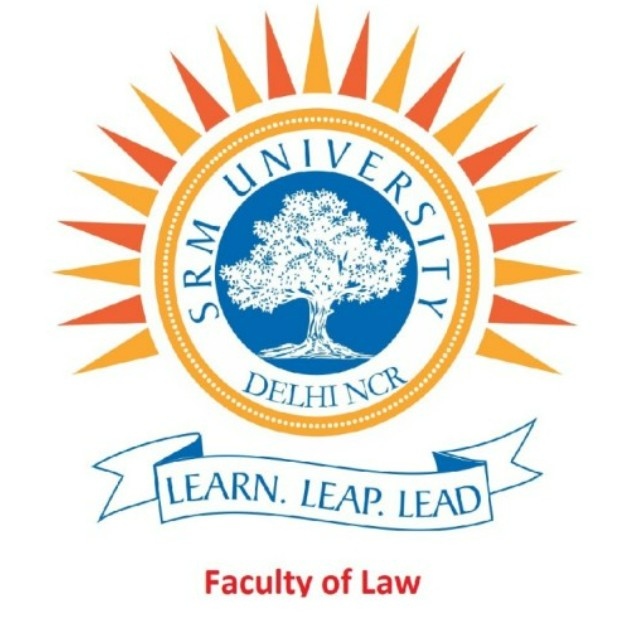Dr. Vijay Kumar Singh is a distinguished figure renowned for his expertise and leadership within the legal domain. Presently, he holds the prestigious positions of Professor and Dean at the esteemed Faculty of Law, SRM University, Delhi-NCR. Before this role, he served as the Dean of the School of Law at the University of Petroleum and Energy Studies, Dehradun, and also contributed as a faculty member at the Hidayatullah National Law University (HNLU), Raipur.
Drawing from a formidable academic background, Dr. Singh holds a doctorate in law, complemented by a foundational degree in science, along with laurels in law, including gold medals in both LLB and LLM examinations from Nagpur University. His pursuit of knowledge extends beyond legal realms, having fortified his expertise with an MBA in HR and a PG Diploma in Journalism, showcasing a multifaceted approach to problem-solving and strategic thinking.
Dr. Singh’s journey through academia and professional spheres accents pivotal roles at eminent institutions. Notably, he has steered the helm as Head of the School of Corporate Law at the Indian Institute of Corporate Affairs (IICA), a premier institution under the aegis of the Ministry of Corporate Affairs, Government of India. Before this, he has served as an officer with the Competition Commission of India (CCI), augmenting his understanding of competition law and regulatory frameworks.
Dr. Singh’s credentials extend beyond academia, as he is a certified trainer on “Managing Disputes and Difficult Conversations on the Board” by the Centre for Effective Dispute Resolution (CEDR) and a trained mediator accredited by ICADR. His expertise in arbitration and alternative dispute resolution is further underscored by his life memberships in esteemed bodies such as the Indian Council of Arbitration (ICA) and the International Centre for Alternative Dispute Resolution (ICADR).
A prolific author and thought leader, Dr. Singh has penned seminal works such as “Corporate Power to Corporate Crimes: Understanding Corporate Criminal Liability in India,” shedding light on critical legal dimensions. His literary contributions extend to educational domains with books like Legal Studies I and II for high school students and ‘Learn the Law’ for general readers, published by EBC, enriching legal discourse at various levels.
Beyond scholarly pursuits, Dr. Singh’s intellectual curiosity finds expression through a myriad of articles spanning diverse subjects like sports law, money laundering, corporate governance, and environmental law. His affiliations with esteemed organizations including the Indian Institute of Public Administration (IIPA), the Indian Society of International Law (ISIL), and the Institute of Directors (IOD) reflect his commitment to advancing legal scholarship and policy discourse.
In an exclusive interaction with The Interview World, Dr. Vijay Kumar Singh, Professor and Dean of the Faculty of Law at SRM University, Delhi-NCR, illuminates the dynamic landscape of legal education, emerging domains within legal practice, the transformative influence of technology on the legal sphere, and the ramifications of AI on the legal profession. Herein lies a synthesis of the pivotal points gleaned from his insightful interview.
Q: What key changes and advancements have shaped the evolution of legal education over time?
A: Legal education in our country has undergone significant evolution, evident in the substantial transformations within the legal framework. The government has repealed the old laws and enacted new ones. This indicates a massive shift in focus by the government. Notably, criminal laws have undergone substantial revisions, reflecting a trend towards imbuing laws with a more indigenous character.
The historical context in which many laws were formulated during the British colonial era is no longer applicable to our current era. Consequently, there is a pressing need for a fundamental transformation in both the implementation and legislation of laws. This process is underway, signifying a paradigm shift in our legal system.
Moreover, there is a growing inclination among the youth towards exploring newer areas of law. They are actively seeking expertise in emerging legal domains, reflecting a broader trend towards embracing contemporary legal challenges and developments.
Q: What emerging or novel areas within the legal profession are currently gaining prominence or demand?
A: Certainly. The legal landscape has undergone significant changes over time. Initially, practice areas were quite specific, mainly focusing on civil and criminal law. However, there has been a notable shift towards more specialized areas like regulatory practice.
Nowadays, various regulatory bodies govern specific sectors. For instance, TD SAT handles telecom disputes, and there are lawyers specializing in this field. Additionally, competition law has emerged as a distinct practice area. The introduction of the Insolvency and Bankruptcy Code (IBC) has further diversified legal practice, with specific attention given to its provisions.
Furthermore, under the Companies Act, the emphasis on corporate social responsibility (CSR) has led to the evolution of CSR practice as an independent area. Looking ahead, with pending provisions like individual insolvency under the IBC, we anticipate the emergence of new specialized areas within legal practice.
As the country continues to grow, opportunities abound, particularly with the rise of startups. These ventures will require extensive litigation support and assistance in managing their affairs and resolving disputes. Law graduates will play a crucial role in navigating these legal complexities.
In essence, the legal field is not only growing but also evolving. As more opportunities arise, there will be a growing demand for legal expertise to support various industries and sectors.
Q: How does technology influence and reshape the legal landscape?
A: Currently, as India’s esteemed Chief Justice, DY Chandrachud, highlighted during his discussion on the Supreme Court e-committee’s progress – now in its third phase – significant transformations are underway within the judicial system. Electronic hearings are becoming commonplace, with many high courts embracing this digital shift. The transparent disposition of cases and real-time updates on pending litigations through the national judicial data grid illustrate the positive impact of these advancements.
These technological strides undoubtedly facilitate legal proceedings, yet the notion of technology supplanting lawyers and judges remains speculative. Instead, its role primarily lies in enhancing the efficiency of the existing system. For instance, tasks like reviewing extensive contracts, once time-consuming, can now be accomplished within hours, rather than days.
However, this progress presents a challenge for aspiring legal professionals. They must acquire proficiency in utilizing these tools and understanding their implications, especially concerning emerging legal domains like criminal law, which increasingly rely on forensic evidence and analysis. Consequently, educational institutions are adapting, with initiatives such as the National Forensic Science University specializing in forensic studies.
In essence, while technology undoubtedly influences the legal landscape, its transformative impact is more nuanced. It augments rather than replaces traditional legal practices, ensuring a faster and more efficient judicial process while demanding adaptability from legal practitioners.
Q: What specific changes or impacts has AI brought to legal practices or the legal domain?
A: Artificial intelligence encompasses both narrow AI, which is designed for specific tasks, and general AI, which aims to replicate human-like intelligence across a wide range of activities. In the legal profession, the current emphasis is on leveraging algorithms and large language models, primarily for enhancing search capabilities.
When seeking case analysis, legal professionals rely on these AI tools to sift through vast amounts of data quickly. However, there’s a noticeable shift towards predictive analysis, where parties anticipate future case outcomes based on AI-driven insights. This shift suggests a growing reliance on AI for strategic decision-making within legal proceedings.
Despite advancements in AI, it’s crucial to recognize its limitations. While AI tools can provide valuable indications and predictions, they cannot offer absolute certainty. Human judgment remains essential in interpreting and contextualizing AI-generated insights within the complexities of legal matters. Ultimately, artificial intelligence serves as a powerful aid in the legal profession, streamlining processes and offering valuable insights. However, it’s essential to maintain a balance between technological advancement and the preservation of human discretion and ethical considerations in legal decision-making.



